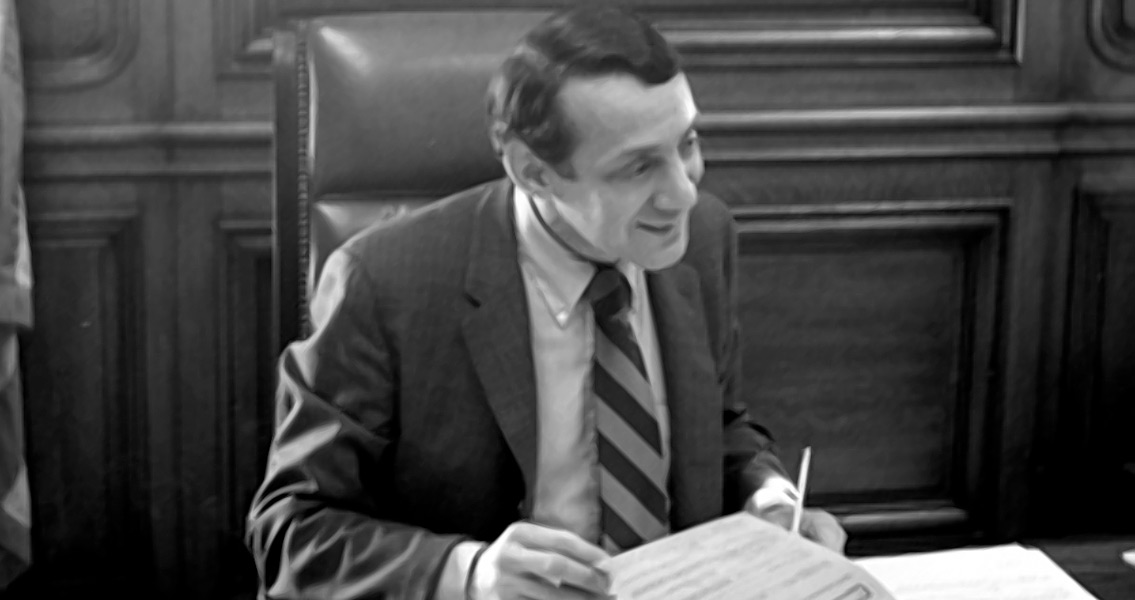<![CDATA[Harvey Milk was one of the most important LGBT civil rights leaders in history, the first openly gay person elected to public office in the United States. Earlier this year, his contribution to tolerance, diversity and equality was acknowledged when the US Navy named a ship after him, a tribute which would have been unimaginable when he embarked on his political career in the 1970s. It is hard to comprehend nowadays the open hostility and discrimination faced by Lesbian, Gay Bisexual and Transgender people little more than a few decades ago. Of course, there are many places in the world where LGBT communities still have to confront shocking prejudice and abuse, but even the tolerance which seems so well enshrined in 'the West' has only come about recently. Milk was born in Woodmere, New York on 22nd May, 1930. Both of his parents came from Jewish and Lithuanian heritage, and were energetically engaged in civic life, among other things helping build a synagogue for the local community. Milk's father, William, had served in the US Navy before returning to New York to set up the family department store: Milks. While attending New York State College for Teachers, where he studied maths and history, Milk started writing a column for the college newspaper, which discussed issues of diversity with a particular focus on the lessons which had and hadn't been learnt in the aftermath of the Second World War. After graduating from college, Milk joined the US Navy, serving as a diving instructor at a base in California during the Korean War. Since high school Milk had known he was gay, but he kept his sexuality a close kept secret, aware of the continued discrimination present in society, and the fact homosexuals were banned from serving in the US Armed Forces. In 1955, he resigned from the Navy after being officially questioned about his sexual orientation. Milk returned to New York, working a number of different jobs: from production associate on Broadway musicals to Wall Street Investment banker. At the same time, he came into contact and befriended gay radicals who lived in Greenwich Village. It proved something of a turning point, whereas previously Milk had stayed quiet about his personal life, he started to become an outspoken member of the flourishing gay rights movement. In 1972, he moved to San Francisco and opened a camera store in the heart of the city's gay community. On the west coast, his political engagement became more active, and his voice as a campaigner much louder. When local merchants attempted to prevent two gay men from opening a store, Milk joined forces with other business owners to found the Castro Village Association, the first in the USA to focus primarily on organising LGBT businesses. The organisation grew in influence, becoming a model for other LGBT communities around the USA. As he became more and more popular, Milk made important connections with figures such as San Francisco Mayor Willie Brown, while the people of San Francisco started to refer to him as the Mayor of Castro Street. In 1977, after several failed attempts, Milk was finally elected to a seat on the San Francisco City-County Board. It became a global news story. In office, Milk became a crucial defender of LGBT rights at a time when reactionary forces were launching vicious political attacks and creating an increasingly hostile environment for lesbians, gays, bisexuals and transvestites. He sponsored a vital anti-discrimination bill, while also helping successfully block Proposition 6: a ballot initiative by State Senator John Briggs that would have seen gay teachers fired from California's schools. Similar political attacks on LGBT rights were happening throughout the US in this period, and often getting through with little resistance; highlighting the hostility of the time and the importance of Milk's work. Beyond LGBT rights however, Milk also campaigned tirelessly on other issues, such as the establishment of day care centres for working mothers, or the conversion of military facilities in San Francisco to low cost housing. On a national level, Milk spoke out on issues of racial, ethnic and gender discrimination. Tragically, Milk's term in office lasted less than a year. On 27th November 1978, a disgruntled former city supervisor, Dan White, assassinated Milk and San Francisco Mayor George Moscone. ]]>
"Hope Will Never Be Silent" – The Life of Harvey Milk
